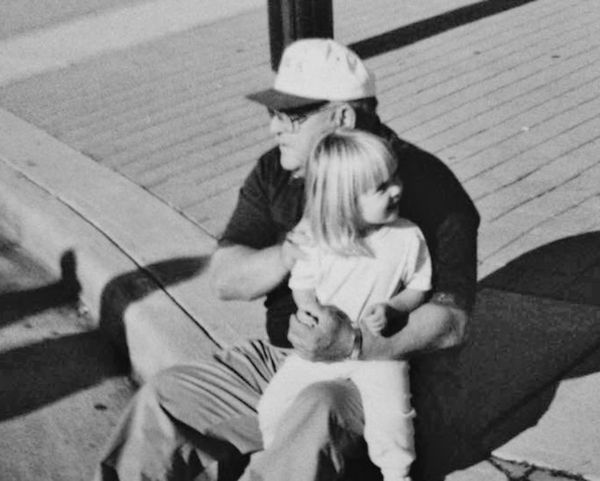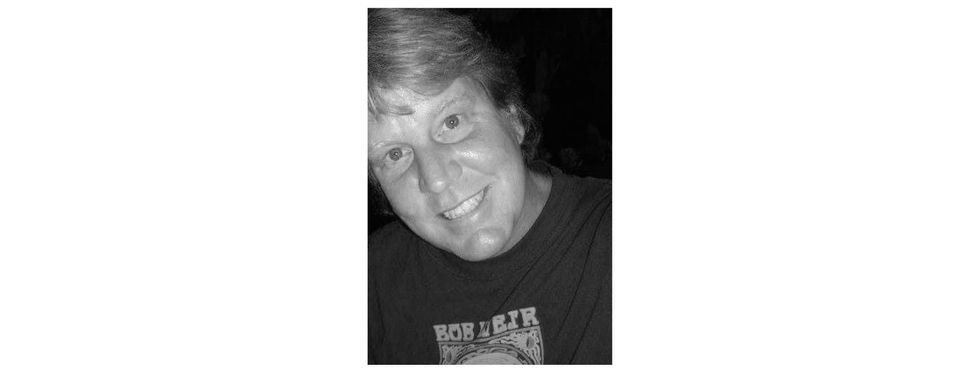Years leading up to my father's passing, I had slowly come to the conclusion that it was inevitable. Someday, at some point too soon, my fathers' alcoholism would destroy him. While I thought that this was something I had accepted and moved on from, his death triggered the realization that I wasn't prepared for any of the lessons life would teach me from this.
1. Addiction doesn't make losing someone any easier.
While I had come to somewhat of a realization that ultimately his addiction would kill him, many people had made it very apparent and clear that his death was a choice he made — a consequence of his own actions, typically combined with some comment about their lack of surprise. These small comments, however, tore at me and my ability to grieve. Was I not allowed to be sad about my father's passing? These conflicted feelings resulted in my swallowing a lot of my feelings as I felt ashamed to be sad or miss my dad since others lose their parents in tragic accidents or horrible "real" diseases such as cancer. After years of reflection, I have come to the realization that YES...I AM ALLOWED TO BE SAD.
Regardless of the circumstances, I lost my father, and while others may not have sympathy for him, I feel that I am allowed to be awarded some sympathy. At the end of the day, I am a daughter, now navigating this world without a father. It's a loss that I feel on most days.
2. People grieve differently and that's ok.
They say the ugly in people comes out when people pass. I am sure under some circumstances, especially when money or possessions are involved, this is true. However my father didn't have either unless you count the man's impressive collection of PEZ dispensers, so I don't believe that this "ugliness" in people emerged. Instead, it was their grief.
My mother was stoic and unmoved. While I sat there in tears outside my parents' apartment, waiting for the medical examiner to arrive, my mother was dry faced and unemotional. I took it personally. Why wasn't she a mess? She lost her husband, the "love of her life," and here she is almost as if it never happened.
You might be thinking "she was probably in shock, give her a break" but to this day, six years later, I have not seen one tear shed from her over my father, at least not publicly. I held this against her for a long time and I would be lying if I said there still isn't some sort of "feeling" there. But ultimately, this is how she grieved. It was always deeply rooted in us by her that "crying only made things worse" and she lived, while my father died, by that motto. She didn't have the same reaction as I had, and that's OK. I now realize that this isn't a reflection or measure of her love for him — that was shown in their many years and struggles together, but this was simply how she needed to get through it.
3. You have to work through your emotions, not around them.
One of the many things, I would have changed in regard to my behavior around this time, was that my father died, and one day later I was back in the office, walking around as if nothing had happened. I had felt everyone's eyes on me but took it as them not knowing what to say. Thinking back, I am sure that they were wondering "why in the heck is she at work?!"
Much of this was already due to my feelings from my first point made here, but it was easier for me to shove all my feelings aside, and get back to normal life. Much like the piles of laundry that easily make their appearance in my house, I decided to step around my feelings, but just like my laundry, these "piles" of emotions only grew larger. The avoidance of processing my feelings and emotions caused some quite impressive (if I do say so myself) breakdowns later on. I think that had I taken some time to process and work through some of those initial feelings, the rollercoaster of emotions I have felt for the past almost six years could have possibly been avoided.
4. Be prepared for some of your childhood skeletons to emerge from their closet.
My father's death has been a reason to reflect on many different levels. I've reflected on everything from life and its ability to be cut short, to addiction, and the age-old debate of disease over choice. But what really has been at the forefront of my mind, is what in the heck happened during my childhood that landed me here?
I was in my mid-20s when my father passed, with most of my childhood behind me (or so I naively thought). The events in my childhood that I had typically chosen to remember revolved around our trips to Disneyland and our family camping trips. But my father's death, at the hands of his addiction, had triggered some of the uglier moments of my childhood to come back. All my memories now seemed to contradict and I was left feeling broken and lost. As quickly as I would remember our family outings to the fair, I would remember the drunken arguments that had broken out in our house, my father's control issues, and the two weeks spent at my grandmother's after CPS had made a surprise visit to our house.
These were things I had not thought of in years, as I was now an adult, functioning in society and solely responsible for my actions and livelihood. They had started to make me question things, such as my parents' love for me, and brought up feelings of anger and resentment toward my now-deceased father, (who I wasn't sure I was even allowed to be mad at). But as "normal" of a life I live now, losing a parent to addiction, had brought to light so many things that I had thought I buried a long time ago.
If you or someone you know needs help with substance abuse or mental health issues, call 800-662-HELP (4357) for the SAMHSA National Helpline.










































